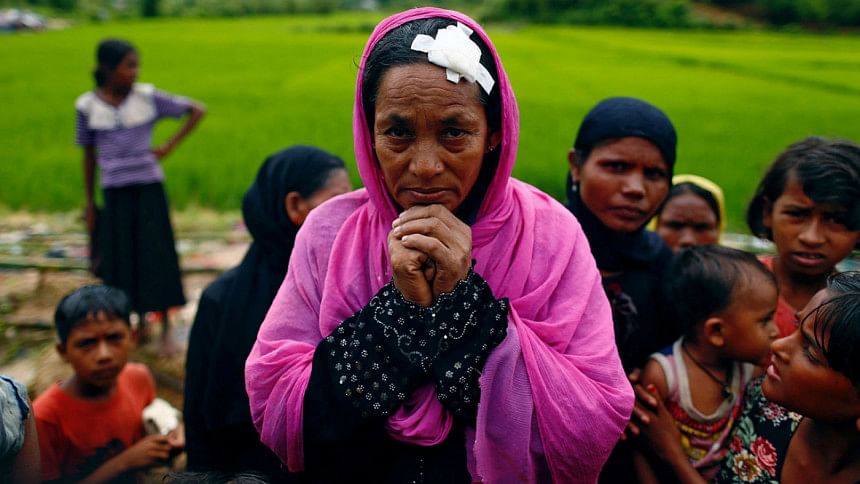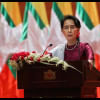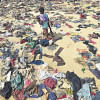Rohingya refugees at 'mercy of traffickers': UN

Hundreds of thousands of Rohingya Muslims who have fled violence in Myanmar are "at the mercy" of human traffickers, the United Nations migration agency warned on Wednesday, saying well-managed refugee camps were needed to reduce the risk.
Fighting in Myanmar's northern Rakhine state has forced 422,000 Rohingya to seek refuge in neighbouring Bangladesh, where unofficial shelters have sprung up outside of two government-run camps.
But the International Organization for Migration (IOM) said the new arrivals – the majority of them women and children - are at risk of human trafficking, as officials and aid workers struggle to cope with the influx.
"Most have no money, no food, no clean water, no shelter and don't speak the language," IOM's Asia-Pacific spokesman Chris Lom told the Thomson Reuters Foundation from the Bangladeshi border district of Cox's Bazar.
"That leaves them potentially at the mercy of anyone offering help and they may end up as victims of trafficking."
Lom said the IOM has sent a counter-trafficking specialist to the border but warned that effectively-run camps were needed to reduce the dangers.
"The best way to minimise this risk is to have a functioning camp management system in the locations where they are settled," he said.
"We - the humanitarian agencies on the ground - are currently a long way from being able to provide this, given the numbers and the speed at which people have arrived and continue to arrive."
Rohingya seeking to escape persecution in Buddhist-majority Myanmar have been trafficked or smuggled by road and sea to places like Thailand and Malaysia in the past.
In 2015, a crackdown by Thai authorities on human trafficking activities saw migrants from Myanmar and Bangladesh abandoned at sea by smugglers. Dozens of bodies of suspected migrants were discovered in jungle camps along the Thai-Malaysian border.
The violence in western Myanmar began on Aug. 25 when Rohingya insurgents attacked about 30 police posts and an army camp, killing about 12 people.
Myanmar leader Aung San Suu Kyi, in her first address on the crisis on Tuesday, condemned rights abuses in Rakhine state but did not address UN accusations of ethnic cleansing by the security forces, drawing a cool international response.

 For all latest news, follow The Daily Star's Google News channel.
For all latest news, follow The Daily Star's Google News channel. 








Comments